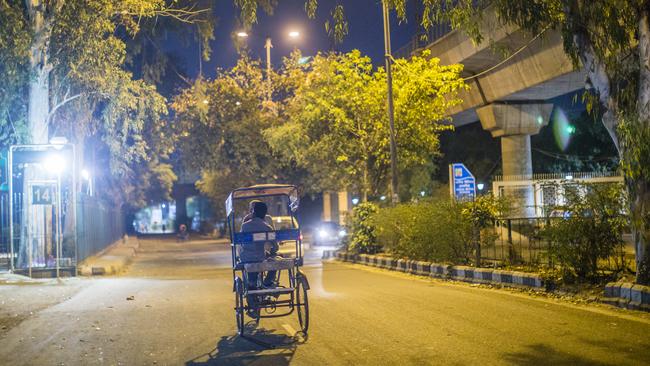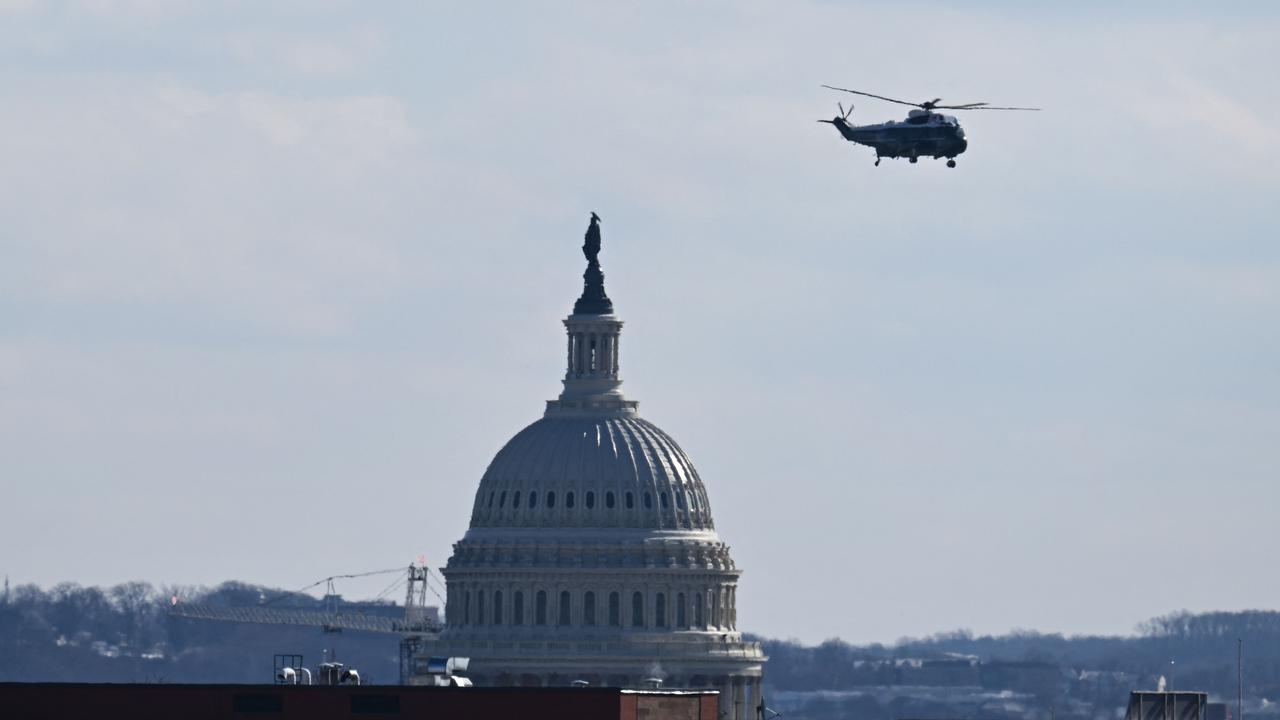Coronavirus: India shuts down as rising infection rate tightens its deadly grip on daily life
India’s 1.3 billion people are now in total lockdown and Malaysia has extended its own by two weeks.

The world’s busiest transit hubs from Dubai to Bangkok are closed. India’s 1.3 billion people are now in total lockdown and Malaysia has extended its own by two weeks.
Even Singapore — an early gold standard for coronavirus protocols — has called last drinks on its bars and entertainment venues and ended all outside teaching classes, a likely precursor to school closures.
Asia has all but closed down — with the curious exception of Japan — as it seeks to curb the spread of COVID-19 through the world’s most populous continent.
But nowhere are the measures more draconian than in India, where Prime Minister Narendra Modi imposed a 21-day nationwide lockdown from midnight Tuesday (5.30am Wednesday AEDT) to try to slow the spread of the virus through its densely-packed population.
“There will be a total ban on venturing out of your homes. There is no other way to remain safe from corona. If we are to stop the spread of corona we have to break the spread of infection,” Mr Modi told the nation on Tuesday night, urging the public not to panic.
“The next 21 days are crucial for us as … a minimum of 21 days is most crucial to break the cycle of infection. If we’re not able to manage this pandemic in the next 21 days, the country and your family will be set back for 21 years.”
His appeal for calm fell on deaf ears as mobs flooded shops in Delhi, Mumbai and other major cities trying to stock up ahead of the curfew and lockdown. Anyone not considered an essential services worker found flouting the lockdown from Wednesday faces arrest and a maximum two-year jail term.
Even the country’s famous arteries, the Indian Railways, have ground to a halt, as have all international and domestic flights.
Many of India’s neighbours, including Nepal, Bangladesh, Bhutan and Sri Lanka, have also moved into lockdown in recent days. Only Pakistan, on India’s western border, which has more than 1000 confirmed cases — the most of any South Asian nation — has refused to lock down, for fear of an economic crisis.
India’s new measures follow a sharp rise in COVID-19 cases in recent days, with 519 patients across India and 10 reported deaths, and a trial 24-hour lockdown on Sunday that did not go as well as hoped.
Small and large retailers across the country have complained of heavy-handedness from authorities and of a drying-up of basic food staples, while surveys by community platform LocalCircles reported that 35 per cent of customers who responded said they were unable to buy essential goods on e-commerce sites over the weekend.
The Economic Times newspaper reported that suppliers of dairy, poultry, fish, mutton and pulses had seen production falls due to staff shortages and supply chain blockages, raising fears of food scarcity in coming weeks.
The pandemic has already wiped billions off the Indian stockmarket, with Barclays predicting the three-week shutdown would cost the country another $US90bn ($150bn) in lost GDP.
Mr Modi, and several state governments, have already promised direct cash transfers or in-kind assistance to daily wage earners who cannot work during the lockdown.
But it’s hard to imagine those payments stretching to the hundreds of millions of Indians employed in the informal sector, most of whom have no bank account, no insurance and no idea how they will keep putting food on their tables.



